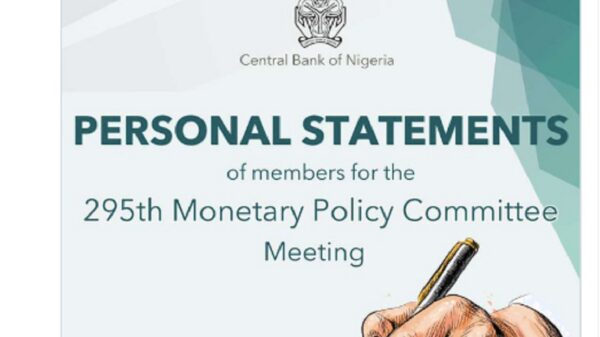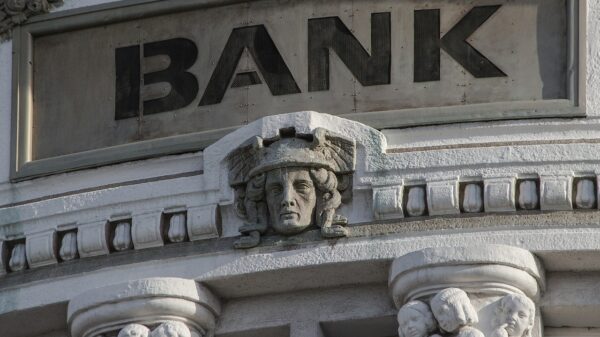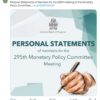On Wednesday, the Central Bank of Nigeria (CBN) revealed that some new naira notes had been redone. CBN Governor Godwin Emefiele commented on the event and said the new designs would start circulating on December 15, 2022.
Emefiele claims that the new notes come in denominations of N200, N500, and N1000. According to the CBN governor, the decision was made due to ongoing issues with the administration of the current series of banknotes and other currencies in circulation, especially those not connected to Nigeria’s banking system.
He said that recently, currency management has had to deal with many difficult problems that have only become more complex, with unforeseen effects on the CBNs and the nation’s credibility.
Emefiele claims that the public has been hoarding a substantial amount of banknotes. The lack of clean, functional banknotes is becoming worse and is endangering financial stability, and counterfeiting is becoming easier and riskier, as shown by various security reports.
He continued by saying that recent photography and printing technology developments have made counterfeiting considerably simpler.
TheCable examines the effects of CBN’s decision in this article.
BEWARE OF “MONEY STACKERS”
Emefiele said that with the new development, the existing series of naira notes are anticipated to be phased out by January 31, 2023.
He advised Nigerians to take their old banknotes to the bank in order to be able to withdraw the new banknotes once circulation starts.
Emefiele announced that cash deposit fees would be suspended immediately to facilitate the gradual replacement of current naira notes.
The central bank instructed the deposit money banks (DMBs) to ensure that any cash returned or put into their accounts incurred no fees.
Temitope Omosuyi, an investment strategist at Afrinvest Securities Ltd., commented on the news and predicted that it would significantly reduce the practise of piling up illegal funds.
He added that people who keep illegal money in their homes must remove them.
“They may have previously removed them from the financial system illegally, but now they must bring all of that money to the commercial bank in order to exchange it for the new currency.”
MONEY SUPPLY CONTROL IS HARDENED
When introducing the redesigns of the naira notes, Emefiele lamented that more than 80% of the money in circulation was not kept in commercial banks’ vaults and that this “takes money supply out of the hands of the central bank.”
The CBN may now circulate the new notes, regulating the system’s level of liquidity for monetary stability. If the CBN regains control of the money supply, inflation, which peaked at 20.77 per cent in September 2022, may be brought under control.
“We have N3.23 trillion in circulation as of September 2022. Out of that, N2.73 is not within bank vaults, according to the CBN governor.
“First and foremost, we want to transfer all of this N3.32 trillion back to the CBN to regain control over the money supply and start analysing how doing so would assist in containing inflation. Without a doubt, it reduces inflation.
According to Forbes, controlling the amount of money in the economy is a crucial monetary technique to prevent inflation.
Omosuyi thinks that the CBN’s directive might encourage people to spend money aggressively, which could cause inflation in the near future.
He said many people have this money stashed away in their homes, and they want to spend it.
He suggested that, particularly if they do not want to invest their money in financial institutions, this group of people could invest in real estate or even other asset classes, which would drive up prices.
Although depending on the timing, it would eventually improve monetary policy in the medium to long term (three to six months), he added, and it would help the CBN manage currency effectively.
TO AFFECT NAIRA’S VALUE
The stability of the foreign exchange (FX) market is a genuine concern before the old currency is totally phased out. The nation is now experiencing a foreign exchange crisis hurting many vital industries.
Increased dollar purchases are expected in the following days as more individuals contemplate discarding the old notes, further exacerbating the naira’s wild decline.
The question of whether currency vendors will continue to take cash from customers rather than bank transfers is still open.
They will probably now demand electronic naira payments to acquire foreign currency. When he claimed that the change in currency notes would affect the value of the naira, Emefiele did not provide any more information.
We don’t want to do any speculating, so we don’t want to say that this is going to happen, but we anticipate that it will and may affect the value of the naira. We want to live in the present, “he said.
Omosuyi, on the other hand, believes that the foreign currency issue would intensify, stating that “if you put more pressure on the dollars because you rapidly want to swap your money to keep it in dollars, that’s more pressure on the naira.”
QUESTIONS ABOUT PRINTING NAIRA NOTES ‘COST
According to Mada Yusuf, CEO of the Centre for the Promotion of Private Enterprise (CPPE), the CBN’s decision commits limited resources to a project that is not presently prioritised.
The new series of banknotes’ printing costs, he said, will put an extra strain on the nation’s budgetary stability. According to the CBN, printing naira notes with N1.06 trillion in 2020 cost N58.618 billion.
According to Yusuf, “the expense of such a course of action would be ridiculous and unreasonable in light of the anticipated advantages stated by the CBN.”
“It is very improper to start such a wasteful exercise at a time when the government is struggling with a huge budget imbalance, a debt crisis, a severe income issue, and underfunding of numerous government projects and programmes.”
“Currency represents less than 7% of the total money supply, and therefore, the exercise has no relevance to monetary policy. He said the CBN has to focus on other, more critical matters.
“We have problems with liquidity in the foreign exchange market,” he stated. “We have problems with the falling currency, the recent downgrading of Nigeria by Moody’s, the surging inflation, and many more.”





















































You must be logged in to post a comment Login